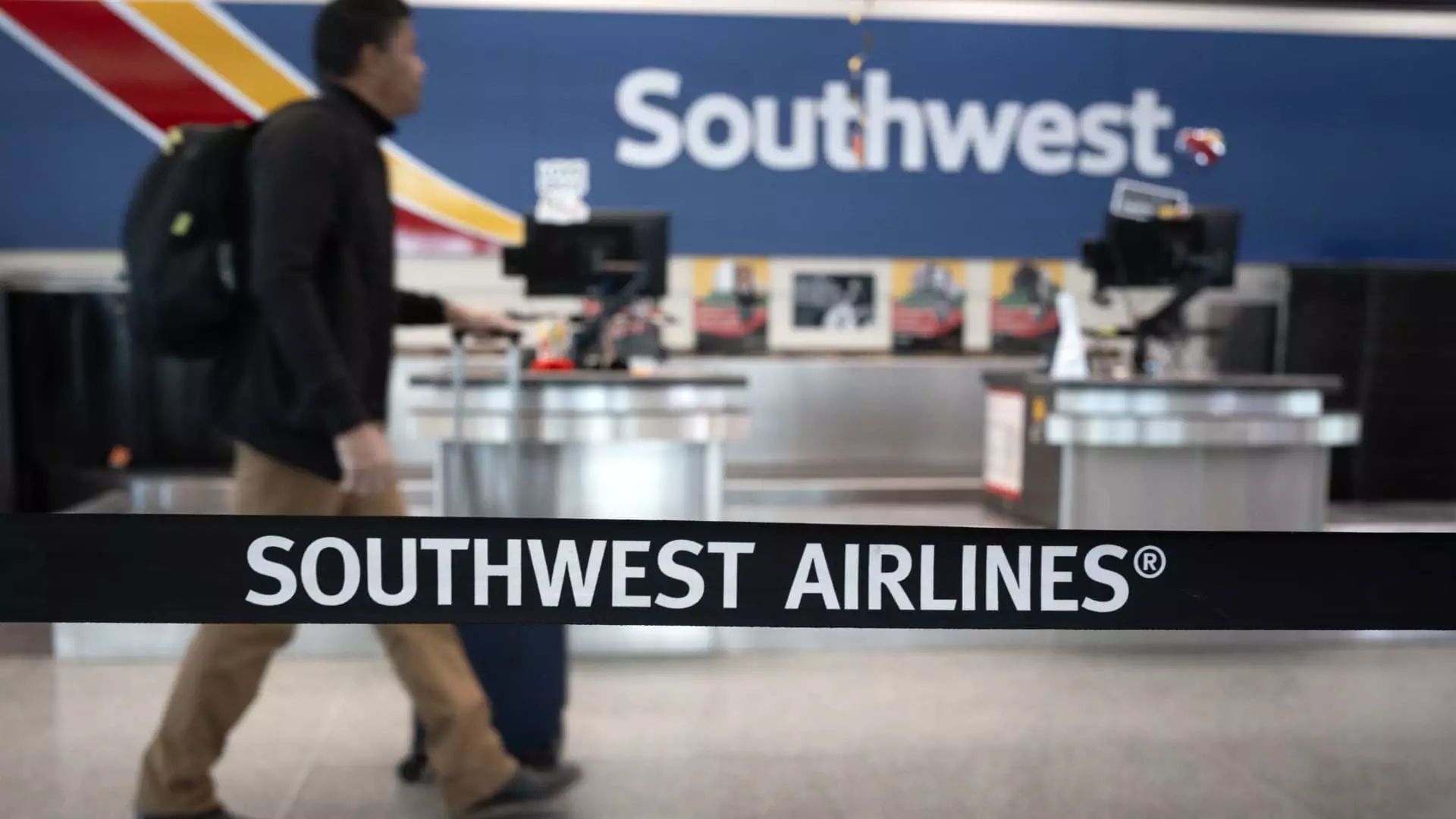In a bold and controversial move, Southwest Airlines is dismantling one of the few remaining bastions of consumer-friendly air travel by charging for checked bags. For over fifty years, the airline has been a champion of the “two bags fly free” ethos — a policy ingrained in its brand identity. This decision is not merely a financial pivot but a stark indication of shifting priorities in the airline industry, where the customer’s needs often take a backseat to corporate bottom lines. The airline’s decision signals a somber reality: loyalty no longer carries the weight it once did.
The proverbial clock is ticking, and starting Wednesday, customers must brace themselves for this seismic shift. An era of free checked bags has come to a close, replaced by a new paradigm that emphasizes profitability over customer delight. It’s as if Southwest has traded in its wings for a corporate balance sheet; a betrayal to those who have supported the airline through thick and thin.
Cobbled Insights: The Drive for Increased Revenue
One cannot overlook the wildly lucrative realm of baggage fees, which generated an astonishing $7.3 billion for U.S. airlines last year alone. Southwest, under pressure from its new shareholders at Elliott Investment Management, is succumbing to a model driven by profit expectations. The aviation industry is an often volatile beast, where consumer goodwill is easily swallowed by corporate greed. It seems many airlines are in a race to commodify every aspect of air travel, reducing the once-exuberant experience to a menu of fees and restrictions.
To this end, the financial winds have blown in favor of major changes at Southwest, such as the introduction of basic-economy fares. These stripped-down tickets mirror the practices of competitor airlines, relegating Southwest to an indistinguishable position among the sea of other carriers. It raises an eyebrow: Have we witnessed the birth of yet another cookie-cutter airline model where differentiation is sacrificed at the altar of profitability?
A Lobbying Nightmare: The Impact of Shareholder Power
One of the most unsettling aspects of this policy change is the evident influence of Elliott Investment Management, which now has representation on Southwest’s board. Their aggressive push against the carrier’s long-held policies reflects a concerning trend across industries; when shareholders wield more power than the customers who actually use the service, the integrity of the business model is jeopardized. What happens when the very soul of an airline — its customer loyalty, its cherished values — is tossed aside for quick profits? This reflects a troubling prioritization that may resonate deeply with travelers weary of being treated merely as revenue streams rather than valued individuals.
Although Southwest insists that decision-making has not been irrevocably altered by Elliott’s influence, the optics tell a different story. It leads one to wonder: Are we in a new era of corporate oversight where short-term gains eclipse long-term sustainability and customer satisfaction?
The New Normal: Diminished Expectations and Changing Expectations
With the end of free checked bags, passengers are now expected to haul their belongings aboard, squeezing the entirety of their travel supplies into modest carry-on bags. Another can of worms is opened with the promise of larger overhead bins and mobile bag-tag printers. While these solutions attempt to address the anticipated surge in carry-ons, they highlight an undeniable fact: the comfort afforded to customers is diminishing. The struggle for personal space and the impending backdrop of chaotic boarding processes loom ever nearer.
Moreover, the proposed changes threaten to shift air travel further into a cutthroat competition for pricing strategies, where the airlines mask their feeble attempts at service as mere options. Basic-economy tickets that offer scant benefits, coupled with limited boarding privileges, signify a troubling trend where the once vibrant and adventurous experience of flying slowly becomes mundane and transactional.
A Betrayal of Loyalty: A Flight Plan for the Future?
As Southwest charts a new course, the airline’s loyalists can only watch in disbelief and frustration. The open-seating policy, an era characterized by excitement and unpredictability, is on the chopping block as advancements in seat assignments loom ahead. Loyal customers, who once reveled in the ability to secure their boarding spots and share a communal experience with fellow travelers, are now at risk of losing even that personal connection.
CEO Bob Jordan maintains that customer bookings have not waned since the announcement of this policy change. Yet, how long can such assertions hold water when the very nature of the airline experience is being eroded? The communal spirit which once made flying a moderately enjoyable venture is slipping away on the wings of capitalism. What remains is an industry caught in a paradox, where the customer-centric narrative is overshadowed by shareholder mandates. Southwest Airlines has severed ties with what once made it unique, jeopardizing the essence of its business model.

